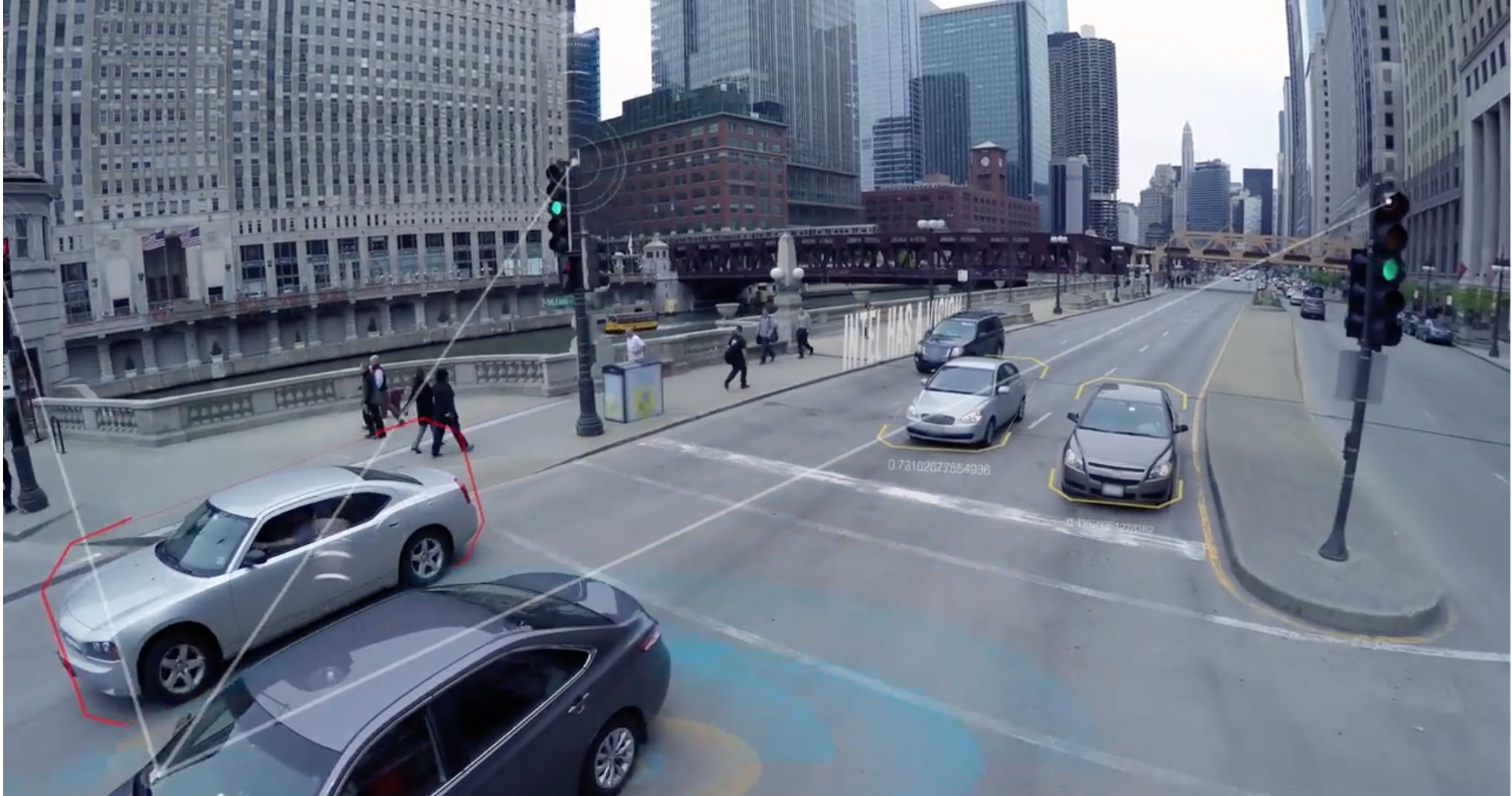
Intel
Intel’s announcement last week that it was investing $250 million into autonomous vehicle testing, along with other recent corporate acquisitions, highlights the growing future of self-driving cars.
Intel CEO Brian Krzanich said, at the Automobility LA conference, that Intel will make the investment over two years to enable an autonomous vehicle industry that requires more than 4,000 gigabytes of data from a single car each day.
“Every autonomous car will generate the data equivalent of almost 3,000 people. Extrapolate this further and think about how many cars are on the road,” Krzanich said in a company blog. “Let’s estimate just 1 million autonomous cars worldwide – that means automated driving will be representative of the data of 3 billion people.”
Krzanich said, going forward, the automotive ecosystem must tackle three challenges when it comes to data: the size of data sets, the intelligence development cycle to process data, and security. “And to overcome these challenges, manufacturers and suppliers must achieve scalability – they need a means to collaborate, share and learn without losing their competitive position,” he said.
Krzanich went as far as saying that data is the “new oil” when it comes to the car of the future and automated driving. “Data has the potential to radically change the way we think about the driving experience: as consumers, as automakers, as technologists and as citizens of our communities,” he said.
When designing an autonomous car, Krzanich contends that industry has to account for cameras, radar, sonar, GPS and LiDAR, which are as essential as pistons, rings and engine blocks.
Cameras will generate 20-60 megabytes, radar upwards of 10 kilobytes, sonar 10-100 kilobytes, GPS will run at 50 kilobytes, and LiDAR will range between 10-70 Mebabytes, Krzanich said.
“Run those numbers, and each autonomous vehicle will be generating approximately 4,000 gigabytes – or 4 terabytes – of data a day,” he said. “This data comes from the car’s sensors that interpret the difference between a child or an animal, a fallen branch or a traffic cone and directs the outward decisions and movements of the car. This data takes an incredible amount of compute power, and whoever has the best data can develop the best artificial intelligence tools of machine learning, deep learning algorithms and data analytics.”
Intel already has been investing in the autonomous vehicle industry with a platform product for advanced driver assisted systems (ADAS), software-defined cockpits, and heavy auto computing capabilities, the company said. The company has worked with BMW, Daimler, Hyundai, Infiniti, Jaguar XF, Kia, Lexus, Mini Cooper, Rolls Royce, Toyota, Tesla and others.
Qualcomm, Samsung Deals Strengthen Autonomous Vehicle Future
The recent announcement that Qualcomm will buy NXP Semiconductors for $38 billion made industry observers say that the company is now a major autonomous vehicle player. However, it remains to be seen whether the pending acquisition by Qualcomm and NXP is a good fit as there have been arguments about the future of vehicle-to-infrastructure technologies championed by NXP, according to published reports.
According EE Times, some V2X companies promote the use of 802.11p-based dedicated short-range communications (DSRC) radio. In the other camp are those who advance the “cellular-based ‘vehicle-to-everything’ connectivity that leverages LTE, LTE Direct and the upcoming 5G cellular standards,” the article said.
Qualcomm’s takeover of NXP Semiconductors, scheduled for next year, will be interesting because NXP is an advocate for DSRC-based V2X, EE Times said. Qualcomm, according to the article, is a major force behind cellular standards – and cellular radio technology-based V2X.
“V2X is important, but primarily as a complement to vehicle-centered automated collision avoidance – and not as a centralized orchestration of individual vehicles. [A cellular revolution with new elements coming in] may bring some reality to V2X,” said Alain Kornhauser, Princeton University transportation program head and professor.
In another big acquisition that will have much to do with autonomous vehicles, Samsung Electronics Co. agreed to buy Harman International Industries for $8 billion in an all-cash deal. This is the South Korean electronic giant’s largest acquisition, leveraging Harman’s experience in connected technologies, particularly in automotive electronics.
Samsung said that automotive electronics, expected to grow to more than $100 billion by 2025, has been a strategic priority. Harman, which has its products in 30 million vehicles, had 65 percent of its sales last year coming from automotive-related products.
…But Not All Partnerships Work
Maybe not all is rosy in the autonomous vehicle world as BMW and Chinese internet giant Baidu said they will end their joint autonomous vehicle project, according to Reuters.
The article said that Baidu is now looking for new research partners, but did not elaborate on why they were going in a different direction. However, the article did say that there were differences in opinion on how to proceed with the research, BMW’s China CEO Olaf Kastner told Reuters at the Guangzhou Auto Show.
Wang Jing, Baidu head of autonomous car development told Reuters that the company was using Ford Lincoln cars in its U.S. testing.

